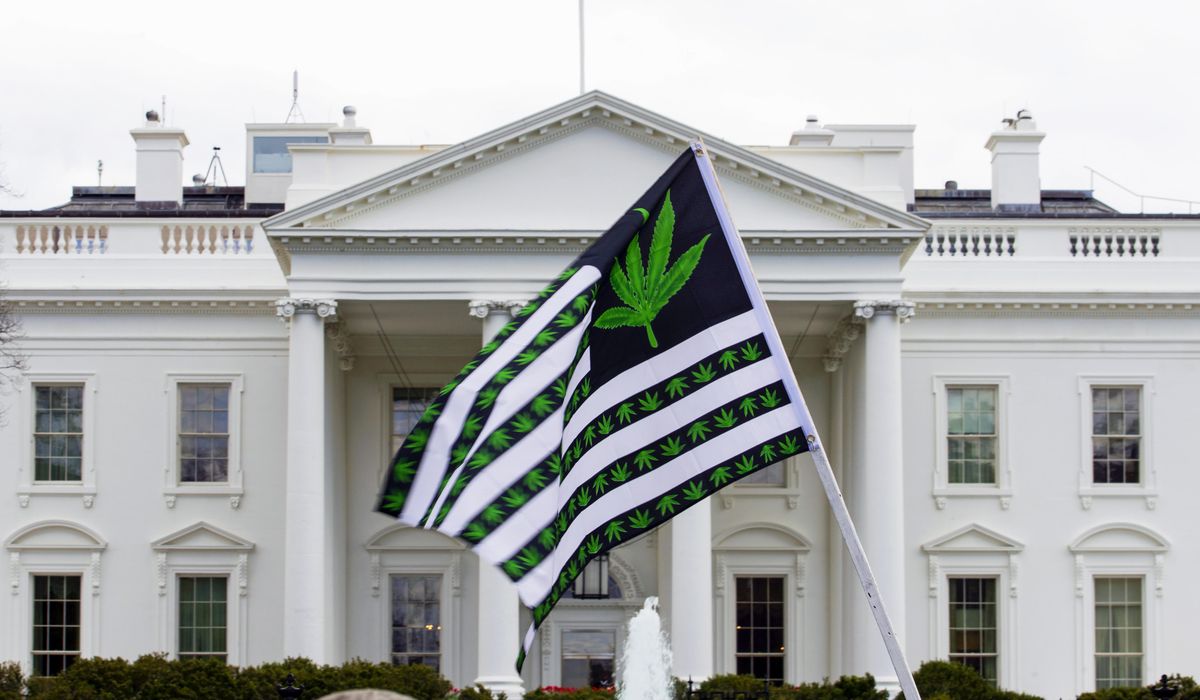


President Biden on Friday granted pardons to people convicted of using and possessing marijuana on certain federal lands and commuted the sentence of 11 inmates convicted of nonviolent drug crimes.
The pardons will clear everyone convicted of federal charges of simple possession or use of marijuana on certain federal lands, which could include federally managed properties such as an international airport or national park.
Mr. Biden said he was correcting an injustice in federal laws.
“Criminal records for marijuana use and possession have imposed needless barriers to employment, housing and educational opportunities. Too many lives have been upended because of our failed approach to marijuana. It’s time we right these wrongs,” the president said in a statement.
It is unclear how many people would be impacted by the pardon, which also applies to people convicted under District of Columbia drug laws.
Neither the White House nor the Justice Department provided information about how many people received the pardon.
Marijuana possession on federal land carries penalties ranging from a $250 citation to a court summons to a $5,000 fine and up to six months in jail.
The pardons do not apply to people convicted of selling or distributing marijuana on certain federal lands.
The pardons follow Mr. Biden’s October 2022 pardon of thousands of people convicted of marijuana possession under federal law, fulfilling a campaign promise to erase prior federal possession convictions.
In his statement, Mr. Biden also encouraged governors to take similar steps to pardon state marijuana possession charges, a move that would affect many thousands of Americans.
Mr. Biden also commuted the sentence of 11 defendants convicted of nonviolent drug crimes, including some with crack cocaine convictions.
The White House did not identify the 11 people whose sentences were commuted, describing them only as “serving disproportionately long sentences for non-violent drug offenses.”
Many would have gotten a lower sentence if they were charged today with the same offense. A commuted sentence means they’ll spend less time in prison, but it is not a pardon, which eliminates the conviction.
The reprieves are part of a broader effort by the Biden administration to help those who have completed federal sentences reenter society. White House officials did not say when the 11 commutations would go into effect.
Mr. Biden has issued about 92 commutations during his presidency, including the 11 who were granted clemency on Friday, according to Justice Department records. He also pardoned 12 individuals separately from the blanket pardon he issued last year for the roughly 6,500 federal defendants convicted of simple marijuana possession.
“No one should be in federal prison solely due to the use or possession of marijuana,” Mr. Biden said.
However, he did not call for federal decriminalization of marijuana, which is something that Congress would have to do.
Marijuana is illegal under federal law, even as individual states have moved toward legalizing it for recreational and medical purposes. Under the 1970 Controlled Substances Act, marijuana is considered a Schedule 1 drug, meaning it has “no currently accepted medical use and a high potential for abuse.”
Friday’s actions were somewhat of an about-face for Mr. Biden, who during his nearly four decades in the Senate, worked to pass laws implementing more stringent penalties for drug crimes.
As a senator in 1994, Mr. Biden championed a crime bill that laid the groundwork for mass incarceration, disproportionately impacting the Black community. During his 2020 presidential campaign, Mr. Biden apologized for championing such aggressive measures and promised more leniency to nonviolent drug offenders.
Civil rights groups, including those representing minorities, have been pushing Mr. Biden to take stronger actions to demonstrate his commitment to overhauling what they say are inequities built into the criminal justice system.
• Jeff Mordock can be reached at jmordock@washingtontimes.com.
